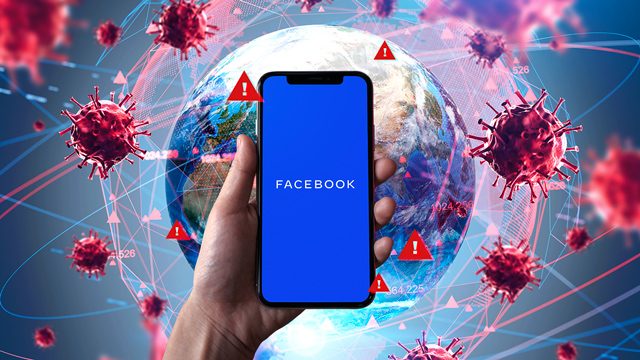SUMMARY
This is AI generated summarization, which may have errors. For context, always refer to the full article.

BRUSSELS, Belgium – The EU on Tuesday, June 9, formally accused China and Russia of mounting targeted coronavirus disinformation campaigns to undermine European democracy, in documents seen by AFP.
In a paper on what it called the “flood” of misleading and inaccurate information proliferating around the pandemic, Brussels says Beijing and Moscow had set out to polarize debate and burnish their own images. (READ: Russia-linked disinformation campaign fueling coronavirus alarm, U.S. says)
The European Commission, the EU’s executive arm, also accuses major online platforms of doing too little to help fact-checkers tackle the “infodemic” of false healthcare claims, conspiracy theories, fraud and hate speech.
“Foreign actors and certain third countries, in particular Russia and China, have engaged in targeted influence operations and disinformation campaigns around COVID-19,” the paper, set to be published on Wednesday, says. (READ: U.S. report accuses China of covering up coronavirus numbers)
The 17-page report, to be presented by EU vice-president for values and transparency Vera Jourova, accuses Moscow and Beijing of “seeking to undermine democratic debate and exacerbate social polarisation, and improve their own image in the COVID-19 context.”
Already in April, the EU’s anti-disinformation task force detailed “a coordinated push by official Chinese sources” to deflect blame for the pandemic, which originated in China.
But the assessment in the commission’s official communication to member states and the European Parliament puts the charge on a more official footing – and in far less diplomatic terms.
EU foreign policy chief Josep Borrell held video talks with Chinese Foreign Minister on Tuesday, warning afterwards that Europe needed to devote more resources to tackling disinformation.
The coronavirus has fed into a geopolitical information war, with the West accusing Beijing and Moscow of promoting false or misleading narratives about the pandemic which began in China late last year.
The EU strategy paper says social media platforms had reported that they were trying to promote accurate virus information and limited content that was false or misleading.
But it says they need to do more.
“Fact-checkers, researchers, and civil society organizations have a crucial role to play, but platforms have not sufficiently empowered them during the current public health crisis,” the paper says.
“There is therefore a need for additional efforts and information-sharing by social media platforms, as well as increased transparency and greater accountability.”
‘More resources’
The EU task force analyzing and debunking misleading stories online is small and currently mainly focuses on disinformation emanating from Russia.
“For sure we have to allocate more resources in the fight against disinformation,” Borrell told reporters.
“We have to work more on that and not only fighting disinformation, trying to counterattack the fakes but to present a positive narrative.”
The report sets the stage for a video summit later this month between EU Council President Charles Michel and European Commission chief Ursula von der Leyen and Chinese leaders.
EU-Chinese relations have hit a rocky patch as Brussels struggles to calibrate its response to Beijing’s growing assertiveness under President Xi Jinping.
The bloc has characterized Beijing as a “systemic rival” – to the disgruntlement of Chinese officials – and sought to challenge it on human rights issues such as Tibet and Hong Kong.
But the EU has struggled to maintain a united front as 27 national governments pursue their own interests, political and economic, with the Asian giant.
Borrell, who in recent weeks has called for a “more robust” EU stance on China and warned Beijing does not share European values, said governments needed to wise up.
He said he raised EU concerns about Beijing’s plan to impose a national security law on Hong Kong, which Western governments say will curb the city’s cherished freedoms. – Rappler.com
Add a comment
How does this make you feel?
There are no comments yet. Add your comment to start the conversation.